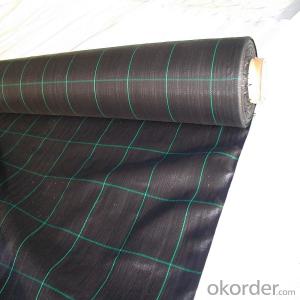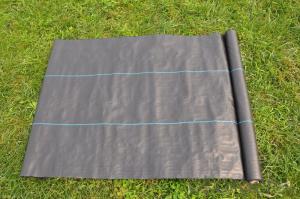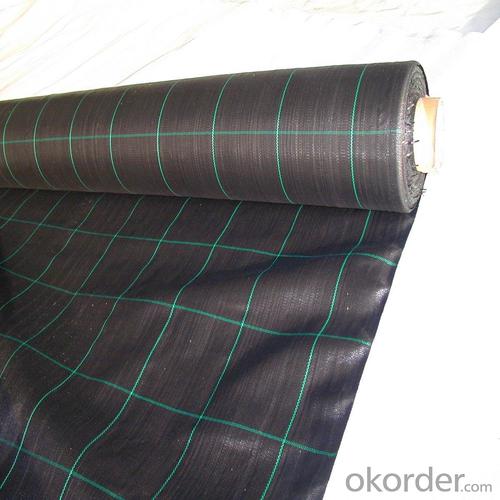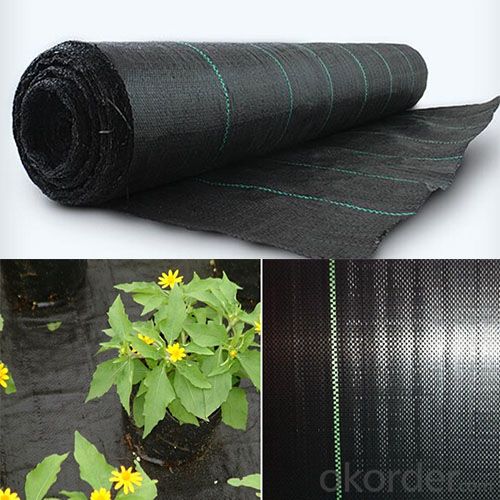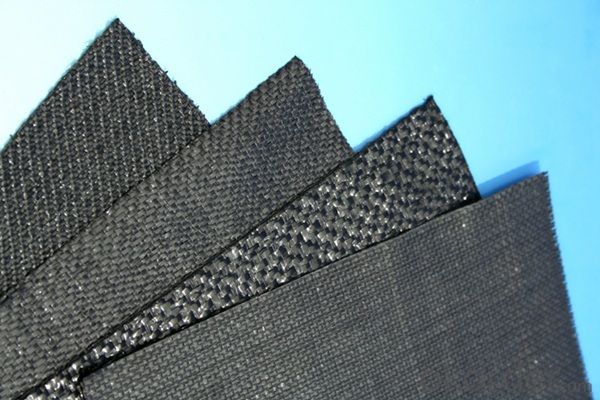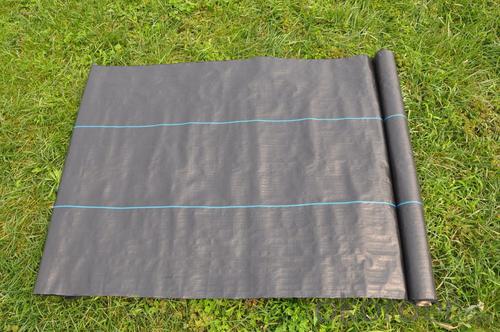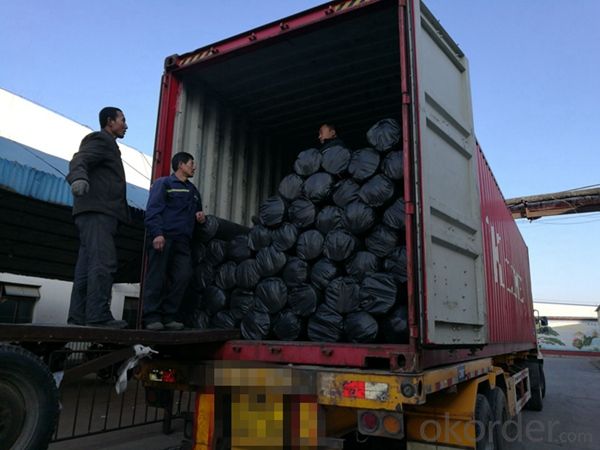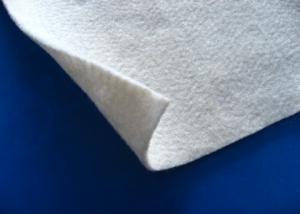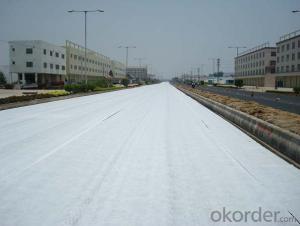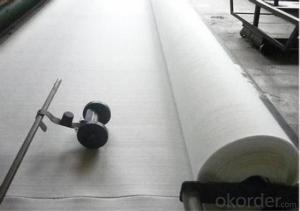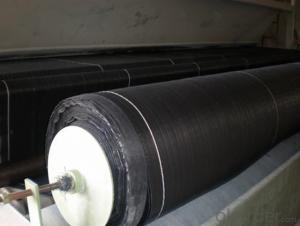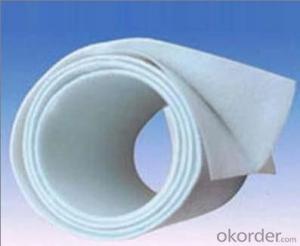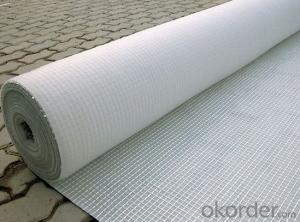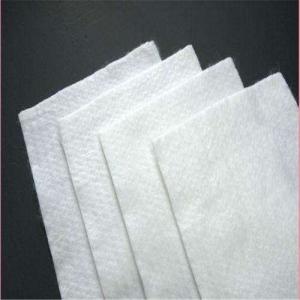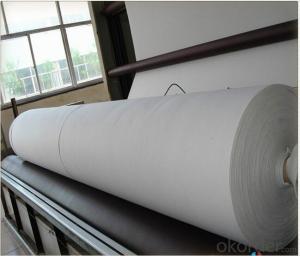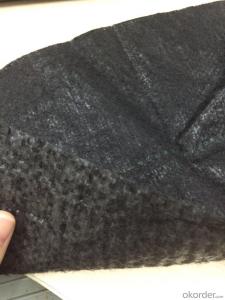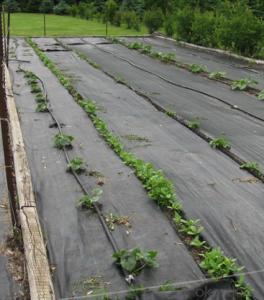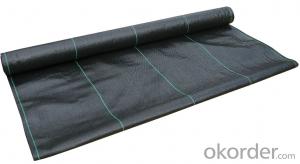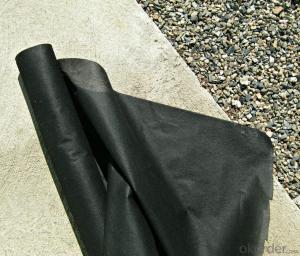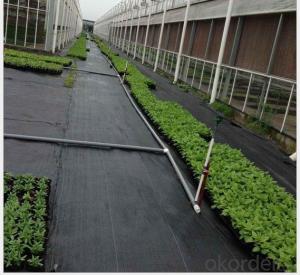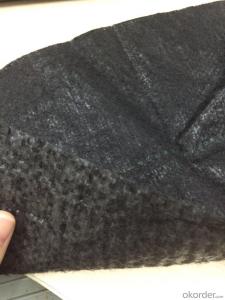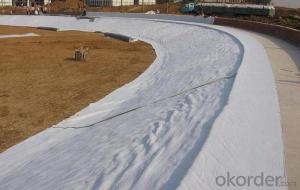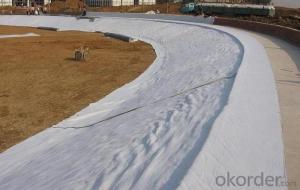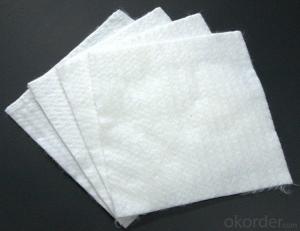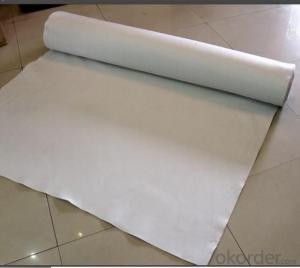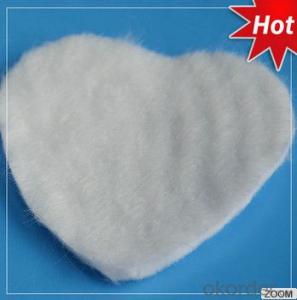Geotextil Tejido Precio Nonwoven Split Joint Fabric/Nonwoven Weed Barrier Fabric
- Loading Port:
- Qingdao
- Payment Terms:
- TT or LC
- Min Order Qty:
- 10000 m²
- Supply Capability:
- 500000 m²/month
OKorder Service Pledge
OKorder Financial Service
You Might Also Like
Weed Control Fabric Product Description
Weed Control Fabric is also known as weed control mat, anti grass cloth, ground cover, weed barrier, it is woven by polyethylene or polypropylene material. It is mainly used for ground weed prevention in the green house, drainage, maintain ground clean, ground mark and agricultural guidance, road surface protection and so on.
Weed Control Fabric Specification
Product Name | Weed Control Fabric |
Materials | 100% PP or 100% PE |
Weaved Condition | By circular jet loom or water looms |
Width | 0.5m to 6m (1.64ft to 19.69ft) |
Length | Made to the order (Customized available) |
Weight | 70g/m2 to 400g/m2 |
Mesh | 8x8; 10x10; 11x11; 12x12; 12x16; |
Colors | Black, Green, White etc. (Customized available) |
UV Protection | 2 years, 5 years, or more |
Application | Green House; Garden; Landscape; Road surface protection; Seedbed protection; Grass control etc |
Weed Control Fabirc Features
1. Weed suppressant and drainage control landscaping fabric
2. Easy to use, Environmentally friendly
3. Allows water, air and nutrients through, suppressing weeds without the use of chemicals
4. Reduces the level of watering required due to the slower rate of water evaporation
Weed Control Fabric Application
1. Excellent Weed Control
2. Moisture, fertilizers, air reach plants to allow for healthy soil
3. Good water and air permeability
4. Exceptional toughness and strength
5. Durable, tear-resistant; won't rot or mildew
6. Lightweight, easy to install, follows natural ground contours
7. Ideal for use in landscaped beds, under decks and walkways.
Packaging & Delivery
| Packaging Details: | Packed In Roll Or In Bales Or Cartons Or According To Customers Requirement |
| Delivery Detail: | 20 Days After Order Confirmed |
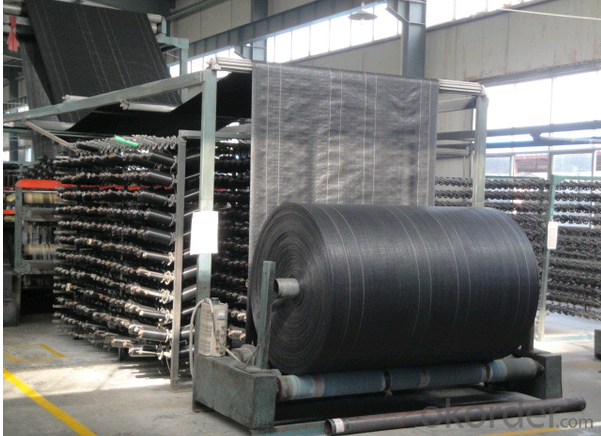
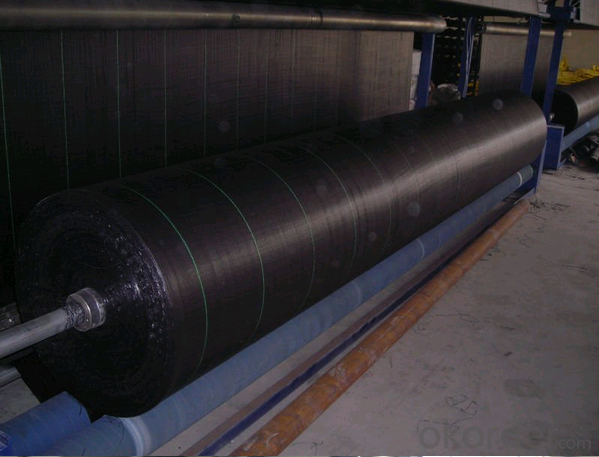
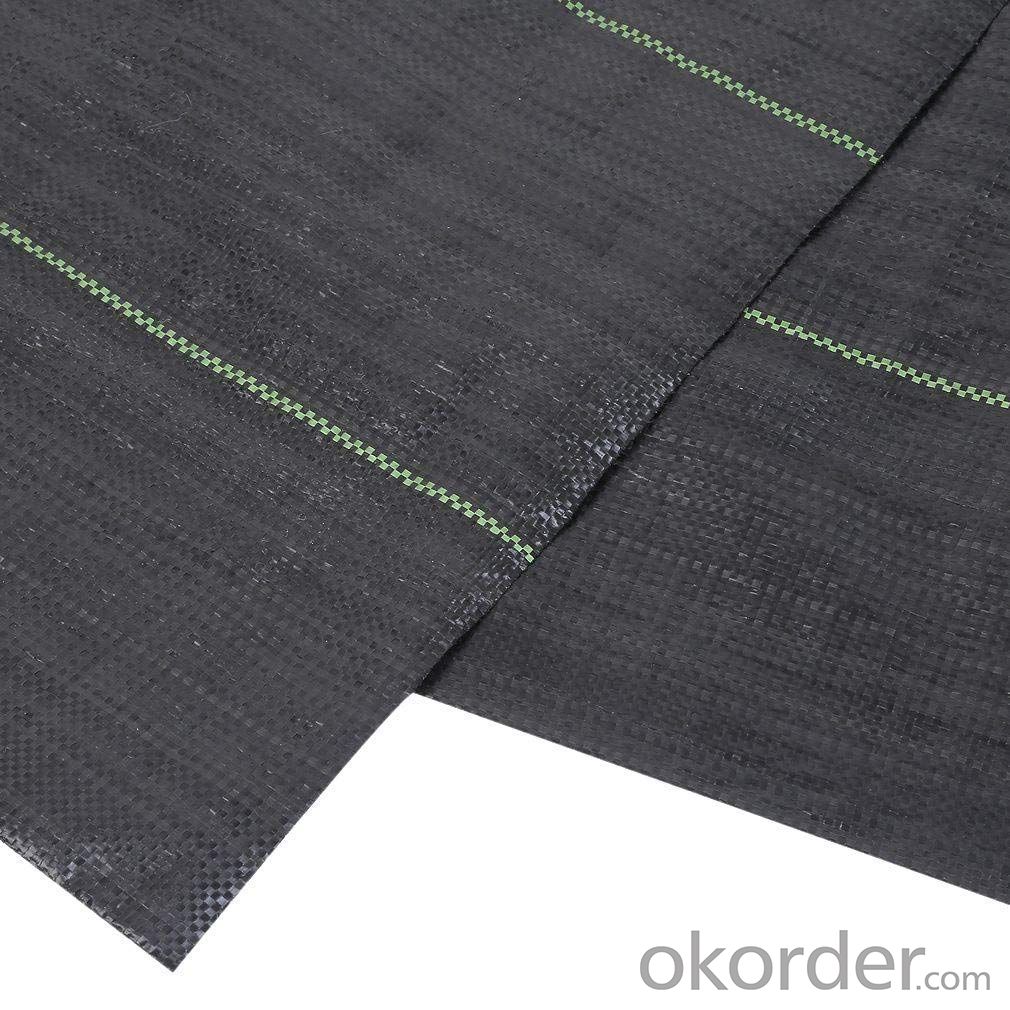
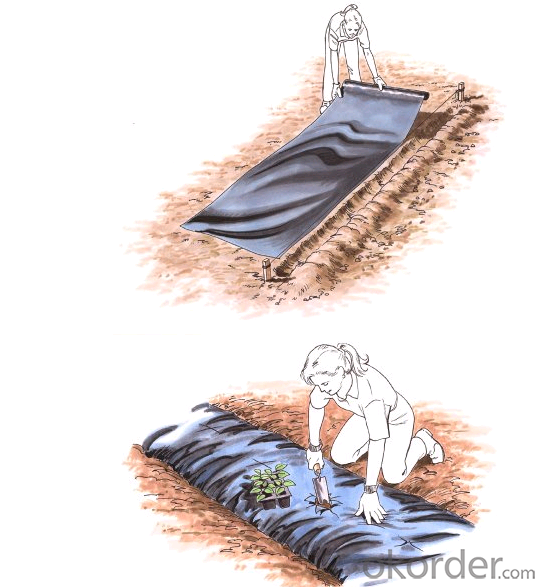
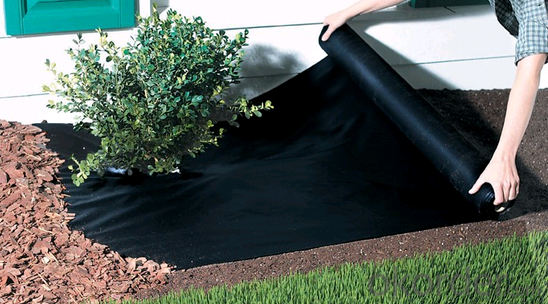
- Q: How do geotextiles contribute to soil separation?
- Geotextiles contribute to soil separation by acting as a barrier between different soil layers, preventing them from mixing or interacting. This separation helps to maintain the stability and integrity of the soil structure, prevents erosion, and enhances the overall performance of the soil in various construction and landscaping applications.
- Q: Is the polyester nonwoven fabric geotextile?
- Not geotextile. Polyester non-woven fabrics: mainly used for construction, roof waterproof as a base cloth, attached to the above sand, cement, etc., to prevent the role of sand leakage. Nonwovens are often used in construction and are a measure to prevent cracks. Geotextile manufacturers, for your answer
- Q: Can plant roots penetrate geotextiles? Which kind of similar material can keep soil and water and let the plant roots pass through it?
- Of course. The roots of plants are omnipotent, and it has a strong vitality. It is small, but its power is infinite. It is also because it is small, it makes it seamless no omnipotent. It can wear the river across the sea, it can wear stone to break the ground, it is powerful you can not imagine, you do not see the cliffs on the grass, the king did not see the plow of the fern leaves!
- Q: What is the difference between a hard pipe and a mesh plastic blind ditch?
- Different products, all play the role of drainage ditch need to wrap geotextered soft water pipe does not require geotextile package. Huazhi geotextile material answer
- Q: Can geotextiles be used in flood protection projects?
- Yes, geotextiles can be used in flood protection projects. Geotextiles are often used as a cost-effective and sustainable solution for erosion control, sediment filtration, and stabilization of soil in flood-prone areas. They can be used in various applications such as riverbank protection, levee reinforcement, and shoreline stabilization, helping to reduce the impact of floodwaters and prevent soil erosion.
- Q: How do geotextiles help in preventing shoreline erosion?
- Geotextiles help in preventing shoreline erosion by acting as a barrier between the land and water, providing stabilization to the soil and preventing it from being washed away by waves or currents. They also help in promoting the growth of vegetation, which further reinforces the shoreline and reduces erosion.
- Q: What are the composite geomembranes suitable for use? What are the characteristics of it? There are several kinds of composite geotextiles?
- Water: reservoir seepage barrier seepage dam body slope, etc. Highway: road reinforcement, crack prevention and so on
- Q: Basically I'm thinking of doing a thesis defense on this topic and I want to know if it is any good.
- Any bio-degradable material is not a better substitute for a geotextile material in long run Materials from polymer family may suit better, like Polyamide Polypropylene Polyethylene My answer refers to about having the ability to separate, filter, reinforce, protect, or drain If your purpose of using geotextile material regarding Beach Erosion, Riverbank Erosion, then coconut fibers is a better option
- Q: What are the specifications for geotextiles in stormwater management projects?
- The specifications for geotextiles in stormwater management projects typically include requirements related to the material, strength, permeability, and installation. The geotextiles should be made of durable and UV-resistant materials to ensure longevity. They should also have sufficient tensile strength and puncture resistance to withstand the forces exerted by water flows and vegetation growth. Permeability is another important specification, as the geotextiles should allow water to pass through while preventing the migration of soil particles. Additionally, installation specifications may include guidelines for overlap, anchoring, and securing the geotextiles to ensure proper functioning and stability in stormwater management projects.
- Q: Are geotextiles resistant to hydrostatic pressure?
- Yes, geotextiles are generally resistant to hydrostatic pressure. They are designed to have high tensile strength and durability, which allows them to withstand the pressure exerted by liquids or water.
Send your message to us
Geotextil Tejido Precio Nonwoven Split Joint Fabric/Nonwoven Weed Barrier Fabric
- Loading Port:
- Qingdao
- Payment Terms:
- TT or LC
- Min Order Qty:
- 10000 m²
- Supply Capability:
- 500000 m²/month
OKorder Service Pledge
OKorder Financial Service
Similar products
Hot products
Hot Searches
Related keywords
